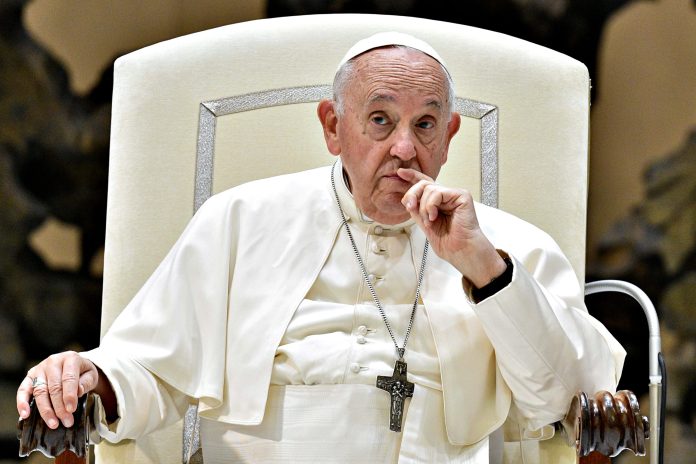Pope Francis announced on Sunday that he will appoint 21 new cardinals from around the world, in an unexpected move to influence the powerful group of churchmen who will one day choose his successor.
The ceremony to install the new appointees, known as a consistory, will be held on Dec. 8, the 87-year-old pope said during his weekly noon-time prayer with pilgrims and tourists in St. Peter’s Square.
It will be the 10th consistory called by the pope since his election 11 years ago as the first pontiff from Latin America.
The new cardinals come from various countries, including Argentina, Brazil, Chile, Peru, Italy, Britain, Serbia, Japan, Indonesia, Canada, Ivory Coast, and Algeria. The list contains 20 individuals under the age of 80 and therefore eligible to vote in the conclave to elect a new pope after Francis’s death or resignation.
One member of the group is above the age threshold – a 99-year-old Italian archbishop, recognized for his service to the Church. In contrast, Mykola Bychok of the Ukrainian Greek Catholic Church is only 44, making him the youngest cardinal.
By the beginning of next year, there will be 140 cardinal electors, with almost 80% of them chosen by Francis. This increases the likelihood that the next pope will share his vision of a more progressive and inclusive Church. Church law technically limits the number of elector cardinals to 120, but recent popes have often exceeded that number. Fourteen Cardinals will turn 80 in 2025, including one who was named on Sunday.
Francis has consistently chosen cardinal electors from countries far from Rome, giving less importance to European nations compared to his predecessors.
All cardinals, regardless of age, are allowed to take part in pre-conclave meetings known as General Congregations, giving them a say in the type of person they think the younger cardinals should choose.
Cardinals rank second only to the pope in the Church hierarchy and serve as his closest advisers. Their historical power and influence ean they are still called the princes of the Church, although Francis has advised them not to live like royalty and to be close to the poor.




